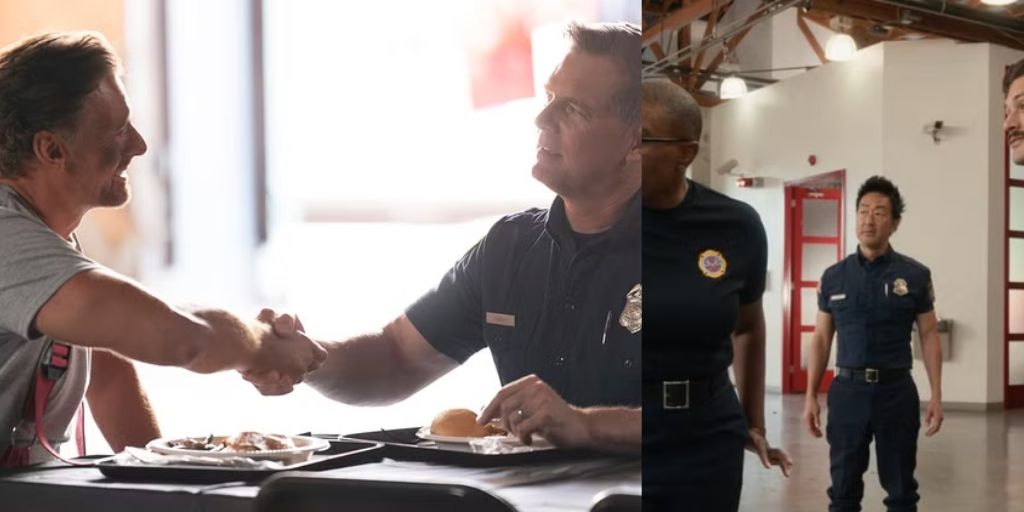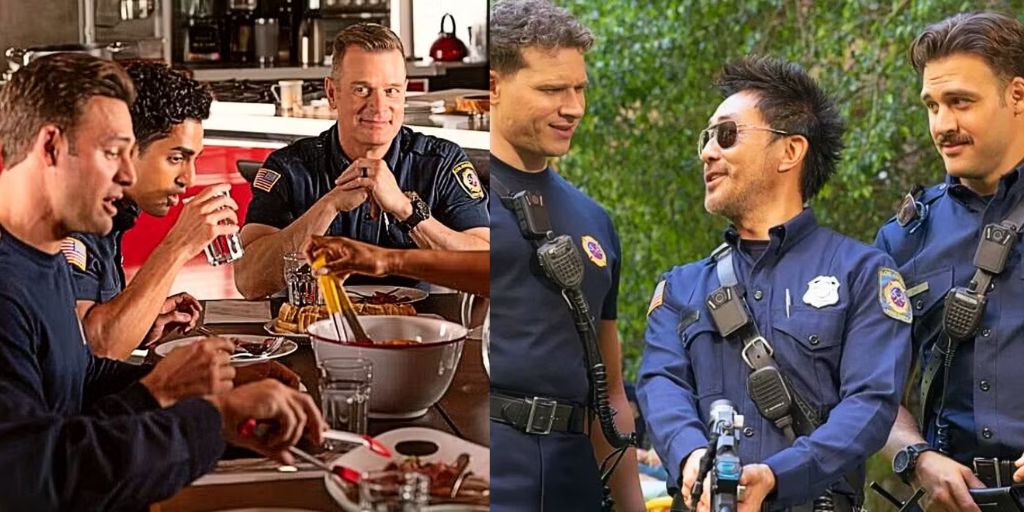Ryan Murphy, a prominent figure in the television industry, is known for his ability to create compelling and successful series. His latest venture is an untitled series set in the 9-1-1 universe, and it is reportedly looking to take place in the beautiful state of Hawai’i.
This choice marks a significant departure from earlier expectations that the next location would be Las Vegas. According to Deadline, Hawai’i has emerged as the leading candidate for this new series, indicating that the tropical paradise may soon be the backdrop for dramatic stories involving first responders.
A Promising New Location
Hawai’i is often seen as a dream destination due to its stunning view, sandy beaches, and rich culture. The islands offer a unique setting that could add a fresh dynamic to the 9-1-1 franchise. The allure of Hawai’i is not just in its beauty; it also has a vibrant culture and diverse communities.
These elements can provide rich storytelling opportunities, highlighting the experiences of first responders in a place that faces unique challenges, such as natural disasters and tourism-related incidents.
This new series would follow in the footsteps of existing shows in the 9-1-1 universe, including 9-1-1, set in Los Angeles, and 9-1-1: Lone Star, based in Austin. The addition of a series set in Hawai’i could allow for new character developments and storylines that show how emergency services operate in a location with different environmental and cultural factors.
Moreover, Hawai’i has a history of being featured in various television shows, showcasing its potential as an attractive filming location. Iconic series such as Magnum P.I., Lost, and both versions of Hawai’i Five-O have all utilized the islands’ scenery to great effect. The state’s diverse environments, from beaches to mountains, create a visually stunning backdrop that could enhance the drama and excitement of the new series.
The Challenge of Production Costs
While the idea of filming in Hawai’i is enticing, it also comes with significant challenges, particularly regarding production costs. The entertainment industry is known for its fluctuating budgets, and first responder dramas like the 9-1-1 series are some of the most expensive to produce.

This high cost is primarily due to the need for top-notch production quality, skilled actors, and advanced special effects that are essential for creating intense and engaging scenes.
As the television industry adapts to changing economic conditions, budgets for new and ongoing shows are often reduced. This trend means that networks must carefully consider their spending, particularly for high-stakes productions like the new 9-1-1 series.
9-1-1: Lone Star faced cancellation due to its high production costs. The show boasted a strong cast, including Angela Bassett and Rob Lowe, which contributed to its budget. When the network found it challenging to sustain those costs, it made the difficult decision to replace the series with a cheaper alternative, Rescue: HI-Surf.
This new show has lower production costs because it does not feature big-name stars, demonstrating a shift in how networks are approaching their programming.
CBS also faced similar challenges with NCIS: Hawai’i, which was canceled after three seasons. Despite having a dedicated fan base, the show’s production costs proved too high for the network to justify. This trend raises important questions about whether the new 9-1-1 series can succeed in Hawai’i without facing similar financial hurdles.
Potential Solutions to Production Challenges
ABC may need to adopt different strategies to manage the potential financial strain of producing a series in Hawai’i. One approach could involve hiring less expensive actors to help reduce costs. While this may enable the show to maintain a manageable budget, it could also impact the full appeal and quality that audiences expect from the 9-1-1 franchise.
Another option might be to scale back on the production quality. This could include reducing the number of elaborate set pieces, special effects, or locations featured in each episode.
However, such changes might lead to a departure from the high production values that fans have come to associate with the 9-1-1 series. The risk here is that viewers may perceive the new show as inferior to its predecessors if the quality is noticeably different.
ABC could also consider implementing a hybrid model for the series, combining on-location shooting in Hawai’i with studio work in more cost-effective locations. This approach could allow the production team to capture the stunning scenery of Hawai’i while mitigating some of the financial pressures associated with filming entirely on-site.
The Future of the 9-1-1 Franchise
As the new series in Hawai’i is in development, the original 9-1-1 continues to thrive on ABC. Season 8 is currently airing on Thursdays at 8 PM ET, drawing in viewers who have followed the series since its debut. The show has maintained its popularity through gripping storylines, character development, and timely portrayals of the challenges faced by first responders.
Meanwhile, the fifth and final season of 9-1-1: Lone Star is airing on Fox on Mondays. The series has garnered a dedicated following, and its conclusion leaves fans eager for what comes next in the 9-1-1 universe. Although the show is ending, there are ongoing discussions about developing a spin-off that could launch in the 2025/2026 TV season. However, specific details regarding this potential project remain unconfirmed.
The success of the 9-1-1 franchise demonstrates a growing interest in first responder dramas. Audiences are drawn to the emotional stories, action-packed sequences, and the complex lives of those who serve on the front lines.
As the industry continues to evolve, it will be essential for producers to find innovative ways to keep viewers engaged while managing their budgets effectively.
Conclusion
The prospect of a new 9-1-1 series set in Hawai’i is an exciting development for fans of the franchise. With its beautiful views, rich culture, and unique challenges, Hawai’i offers a fresh canvas for storytelling. However, the production team must show potential hurdles, including high costs and maintaining quality, to ensure the new show resonates with viewers.

Ryan Murphy and his team have a track record of creating successful and engaging television series. Their ability to balance compelling storytelling with financial realities will be crucial in bringing this new project to life. Whether the untitled series finds its footing in Hawai’i or encounters challenges remains to be seen, but the anticipation surrounding this potential addition to the 9-1-1 universe is undeniable.
As the television show continues to evolve, it will be interesting to watch how networks adapt to changing audience preferences and financial constraints. The commitment to high-quality productions while showing new and diverse settings will play a vital role in the future of the 9-1-1 franchise and other series in the genre.





